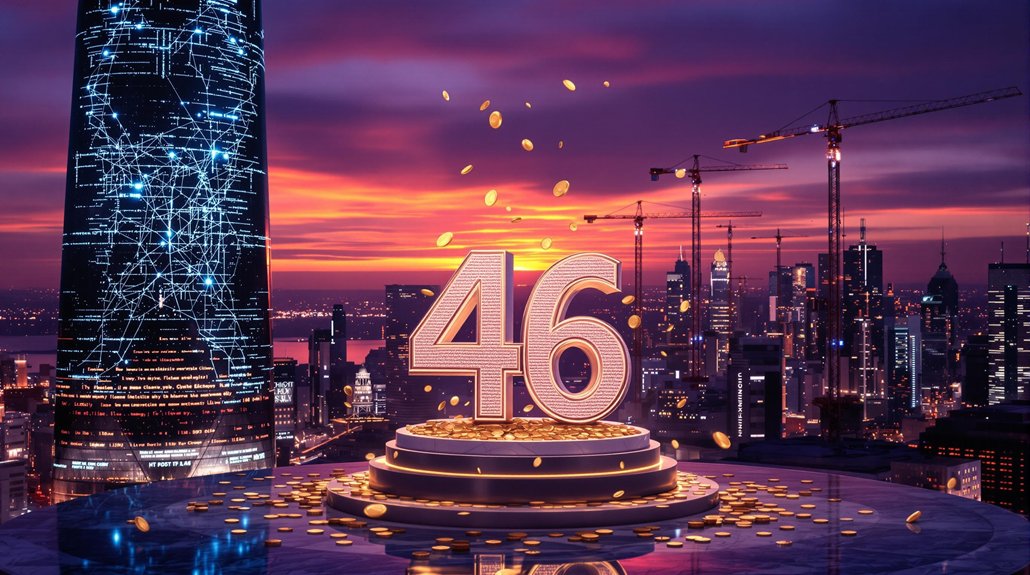The AI gold rush just created 46 new billionaires in 2025, adding a staggering $600 billion to global wealth. That’s right — artificial intelligence is minting the ultra-rich faster than any tech boom before it. Not even the internet or mobile transformations produced billionaires at this clip.
The numbers are almost comical. Nvidia’s Jensen Huang now sits on $155 billion. His CFO Colette Kress and EVP Jay Puri? They’re billionaires too. Google’s Sergey Brin hit $150 billion, because apparently regular billions weren’t enough. Even the brainy folks at Anthropic — Sam McCandlish and Christopher Olah — joined the three-comma club after their company snagged a $61.5 billion valuation.
AI turned Nvidia executives and Anthropic researchers into billionaires overnight, with valuations reaching absurd heights.
What’s driving this insanity? Simple. AI startups are getting valued like they’ve discovered immortality. Anthropic raised $3.5 billion in one go. Nvidia’s stock jumped 170% in 2024. Palantir’s surge turned its CTO and other executives into overnight billionaires. Defense contractors want AI. Companies want AI. Your grandmother probably wants AI. Everyone’s throwing money at anything with “AI” in the pitch deck.
The pace is genuinely unprecedented. Thirty-six unicorns popped up in just half a year. That’s a billion-dollar company every five days. Venture capitalists are pouring cash into AI startups while ignoring pretty much everything else. Market observers keep using words like “unprecedented” and “historic,” which is their polite way of saying nobody has a clue where this ends. This wealth explosion aligns with projections that AI will contribute over $15.7 trillion to the global economy by 2030.
Most of these new billionaires are American, naturally. But the backgrounds are shifting — it’s not just Harvard MBAs anymore. Academic researchers and engineers are cashing in. Some are even under 40, breaking a recent dry spell for young mega-wealth creation. Alexandr Wang of Scale AI became the youngest self-made billionaire at just 28 years old, proving the AI boom doesn’t discriminate by age. His company Scale AI specializes in organizing and labeling data for better AI learning, a critical but unglamorous service that’s made him worth $2 billion.
The global billionaire count hit 3,030 in 2025, with total wealth near $16 trillion. AI’s contribution to that surge? Massive. The sector has become tech’s most lucrative segment, period. Data centers, chips, cloud services — if it touches AI, it’s printing money.
This isn’t just another bubble narrative. It’s a fundamental reorganization of who gets obscenely rich and how fast it happens.








